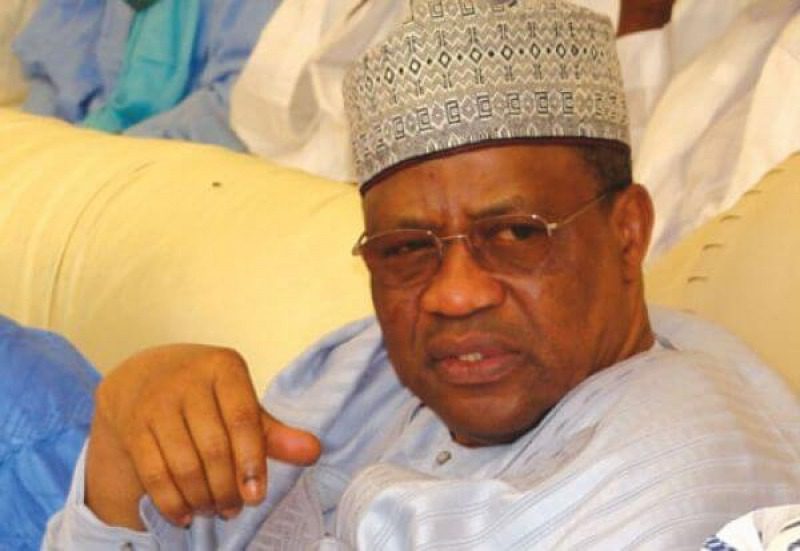Political Issues
IBB’s noxious nostalgia -By Kene Obiezu
To many Nigerians, Mr. Babangida like Mr. Abacha left an irremediably odious legacy. Mr. Abacha has been long dead but each time the conversation turns on the billions of Nigeria`s money he stashed away in Swiss bank accounts he comes alive for all the wrong reasons. Mr. Babangida is still going at 80, but there is no doubt about the pages he will occupy in Nigeria`s weighty book of history.

At the twilight of life, everyone who has lived will be remembered for one thing or the other and be subjected to a variety of reflections by those who knew them. This is true for those who have led private as well as public lives. But of course, the scrutiny becomes much more intense when one has led a public life. For example, if one has been president of a country as big as Nigeria, the scrutiny is expected to be as intense as ever.
At 80, former military president Mr. Ibrahim Badamosi Babangida is drawing ever closer to signing the eternal checkout. He became president of Nigeria through a coup in 1985.He held power until 1993. Before he left, he claimed for himself the eternally dubious distinction of annulling perhaps the fairest election ever conducted at that level in Nigeria. He certainly hastened the demise of the inimitable MKO Abiola and his appointment of the Shonekan-led Interim National Government successfully laid the groundwork for the brutal dictatorship of Mr. Sani Abacha which held Nigeria to ransom for five years, cutting down his opponents with alarming alacrity and emptying the coffers of the country with ruthless efficiency.
To many Nigerians, Mr. Babangida like Mr. Abacha left an irremediably odious legacy. Mr. Abacha has been long dead but each time the conversation turns on the billions of Nigeria`s money he stashed away in Swiss bank accounts he comes alive for all the wrong reasons. Mr. Babangida is still going at 80, but there is no doubt about the pages he will occupy in Nigeria`s weighty book of history.
Mr. Babangida recently granted a wide-ranging interview wherein he took on the subject of corruption, that infernal vice feasting on the country`s morals and resources. In his interview, Mr. Babangida, just as many past Nigerian leaders are wont to do, immediately drew parallels between what was deemed corruption in his days as a military president and the frightening dimension it has taken today. According to the Minna-born octogenarian, to steal three hundred thousand naira in his days was unforgivably grave unlike these days when someone would fritter away billions of naira from the public funds and not be considered corrupt.
As life wounds to an end, there is a tendency to become nostalgic and wish for the return of past joys or simply an impossible return to the past, to correct mistakes made out of ignorance or simple acts of foolery inspired by youthful exuberance. In any case, nostalgia, sometimes noxious and even toxic usually dots the latter stages of many a life.
To understand Mr. Babangida`s longings for a return to the past would require an understanding of the many incursions made by the Nigerian military into the politics of the country, how those incursions strangled an infant democracy and smashed into smithereens the promises of a new country.
In 1966, at the end of a gun, Nigeria`s democracy was plunged into crises as a coup brought the military into power. Those who led the coup must have borrowed a few ideas from a number of newly independent African countries where military coups had overthrown legitimate governments at about the same time. Apart from the cataclysmic civil war of 1967-70 which the coup hastened, until 1999, the military`s incursion into Nigerian politics continued to do irreparable harm. Today, if the country is on the road to democratic recovery, it is because the military now know to mind the barracks and the many war zones ripping the country apart rather than seek political power it is so poorly equipped to handle.
But there is no doubt that the military`s betrayal of a nascent democracy in 1966 continues to reverberate today. To that extent, Mr. Babangida, all those who have contributed or participated in previous coups in Nigeria thereby laying the groundwork for the rot eating up Nigeria today must someday account either to history or posterity.
It was the incursion of the military of which Mr. Babangida has been a key player over the years that pushed the country into a catastrophic Civil War overseen by two disgruntled Nigerian soldiers – one from Anambra and the other from Plateau State.
Each time the military intruded into the politics of the country, the democratic order was suspended and the democratic institutions, including the constitution, Nigeria`s supreme law, were variously suspended. The place of the constitution was taken by draconian military decrees which were the framed whims and caprices of one man and his closed group of advisors.
Then there were the depredations visited on the Nigeria`s wealth. Because persecution was certain for anyone who dared raise eyebrows, the country`s resources were frittered away unaccountably. So, like Mr. Abacha, Mr. Babangida before him did as he wished with the country`s vast oil wealth. The harm done can certainly not be wished away in a haze of haughty nostalgia.
More than twenty years later, corruption has evolved in the country. It has become endemic to governance in a country where it has devised ingenious ways to survive. The lesson of corruption in Nigeria is a sobering caution about the damage it can do and the sheer amount of damaged goods it can leave anywhere and everywhere. Whilst Mr. Babangida enjoys his last years hopefully in peace, he can spare Nigerians his noxious nostalgia.
Kene Obiezu,
Keneobiezu@gmail.com

















